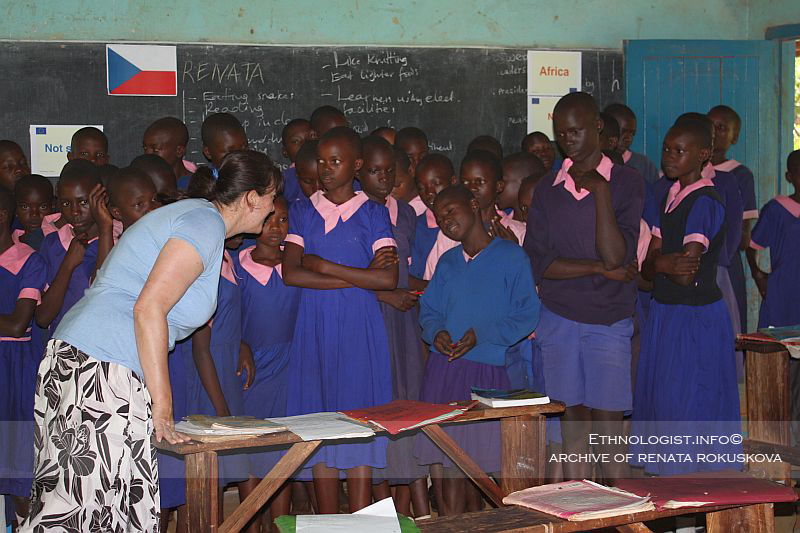
This interview with a director of the Czech non-profit organization ´ShineBean´, Renata Rokuskova, is about the current state of the Kenyan schooling system, the attitude of children to education and their opportunities in the future. We also learn more about the projects of ShineBean organization, through which cooperation between has been mediated Czech and Kenyan schools and about current and starting projects. For example, one of ShineBean´s projects was a donation of goats to poor families. Thanks to this, children could sit in the classroom. For further supporting it was necessary for the family to have a low economic status, good progress in school and especially efforts made by the pupil. The intention of this help was to properly look after the donated goat until they have calves, which could bring a steady profit to the family. Finally, the pursuit of long-term development and support of education are the main goals of Renata Rokuskova and her colleagues.
Do you remember when you decided to help poor families in Kenya for the first time?
It was during my first visit to Kenya. In October, 2005, I entered life in the Kibera slum (a slum district in Nairobi). I have never forgotten these days and since then I have been visiting Kenya every year.
How did you decide what area in Kenya you will support?
We were (and are) looking for people who are active volunteers, who provide good communication and can find new possibilities. We found them in these settlements and communities. So, our cooperation in various locations in Kenya started. It is mainly in the Nairobi slum Kibera at the moment. Furthermore, we also cooperate with schools on the shores of Lake Victoria. These are located near the town of Kisumu, where the population is predominantly Luo people. On the other hand, we are a small organization, so we do not want to split our focus.
Can you tell me more about the situation of the local people?
There was flourishing fishing in this particular area, but it ceased. The decline was caused by an invasion of the water plant, hyacinth, and artificially introduced predatory Nile perch (Lates niloticus) which apparently do not have any natural enemies. Nowadays, people are migrating from more and more drought ridden places, where livestock cannot be herded. Unfortunately, the significant change does not come to the cities – due to enormous concurrence and a woeful lack of jobs.
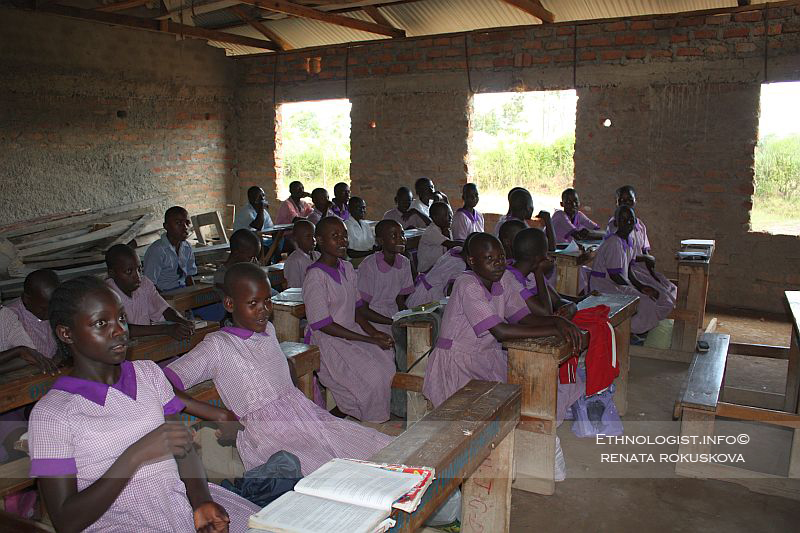
Do you perceive some positive developments in comparison with your first visit to Kenya?
Kenya is developing rapidly. When I started visiting Kenya, there were mostly mud houses with straw roofs. Today there can be seen houses with straw roofs only very occasionally and also mud walls have decreased significantly. They have been replaced by corrugated sheets that better fulfil the function of roofing. There were not any cyclists in 2006 and, at the moment, motor bikers are running a taxi services. The schools were dilapidated and the staff were grateful for any and each school table, blackboards with chalk and not least notebooks and pencils. Furthermore, the teachers are trying to introduce democratic values to the children. The way of teaching is no longer so directive with hard drilling. Of course, there are a lot of things which need to be improved, but I noticed that local teachers are very interested in learning new things and trying different approaches.
You are collaborating with many schools, visiting the poorest families, talking with their children. How many children does each family usually have? Can they afford the education for all their children?
The Kenyan system of education is very sophisticated. On the one hand, education is free, on the other hand, families must pay for obligatory necessities and services: from notebooks and school uniforms to written and final exams. If the student fails the exam, he or she has to pay for a retake. On the one hand, this is a motivating factor, on the other hand, the education system obtains a discriminating element. The monthly prices for the primary schools are around 12 pounds and the high schools are only for higher social classes. The student cost for this higher education is from 58 to 65 pounds, which is almost impossible for many Kenyan families. It follows that the educated are only the ones whose family has financial means. Rural families have six children on average. It seems there is a logic to this – the more of them survive to adulthood, the better help they can provide for their parents. However, the logic falls apart when a small field of land with more and more small harvests must be divided between heirs. Nonetheless, a considerable decline in reproduction has been due to education. In my opinion, Kenyans are reconsidering their original values with the awareness of economic expenses connecting with child education.
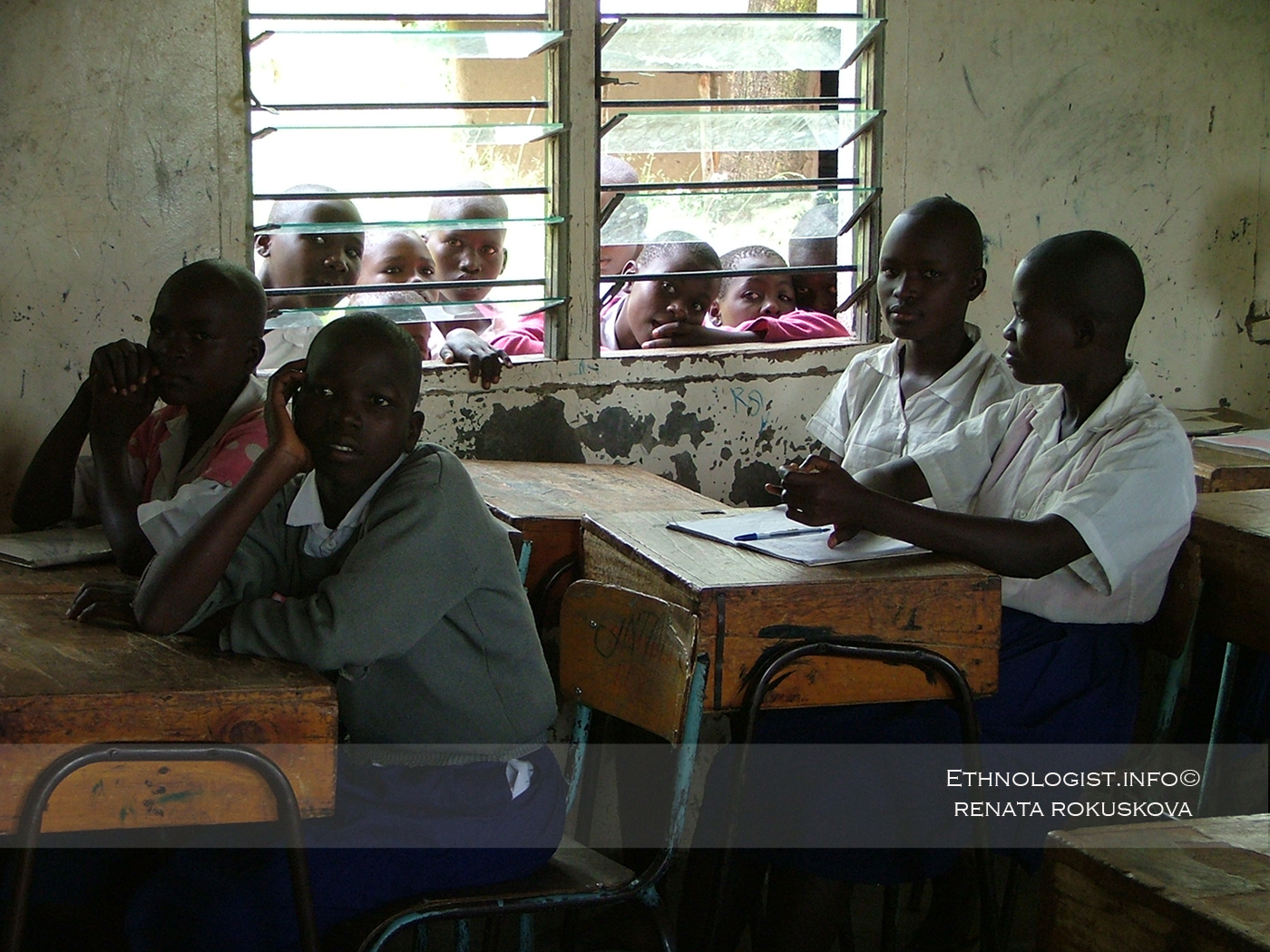
What is the attitude of Kenyan people towards education?
Well, African children are delighted with learning. They perceive education as a way from poverty. I can give some examples. Usually children are very noisy, running around the classroom and speaking loudly before lessons, but when the teacher arrives, the classroom is totally quiet, with the children standing up to welcome the teacher. Moreover, a four-year-old child who cannot count is mocked by his friends in the Kibera slum. In another area, it is the main priority to provide education for the children of the Luo people, even in the case that the parents do not have enough food for themselves.
Are there more opportunities for children after studying? Do they have more advantages in their future?
Indeed, the Kenyan government supports the education system in many ways. It is not perfect, but it exists. Unfortunately, there is no exception that the most talented children leave the school. They are aware, in fact, that with or without education, they will be working for their parents. So, the education does not bring any future perspective. However, I see more and more for who was school useful in their later life. This is what school should do: teach independence and creativity. The person who reaches this can create their own work, can explore where there is possibility in the labour market and can take advantage from knowledge. This kind of person usually goes to the city, where there are more opportunities.
The non-profit organization ShineBean have just finished the long running project called ´Shirika´. What was the main aim and has this project succeeded?
This project started with school manuals, which were created by the Czech organization ´The Multicultural Centre Prague´ (MKC) with the non-profit organization, ´NaZemi´ (en. ´OnEarth´). These school manuals were used in Czech and Indian schools and established international pairs, which have gradual various thematic tasks and topics (for example photomontages, exploring your own area, collecting plastic waste and then creating things and objects). These particulars pairs were exchanging finished tasks and trying to understand the friend´s views and experiences from another continent. ShineBean optimized these effective manuals to local Czech conditions and also to Kenyan children. Furthermore, the Kenyan schools are very interested in these projects and asking us for it. The main aim of this project was supporting the creativity of children and increasing their knowledge about the world. We were trying to break down the stereotypes on both sides and ridding clichés about ´the others´.
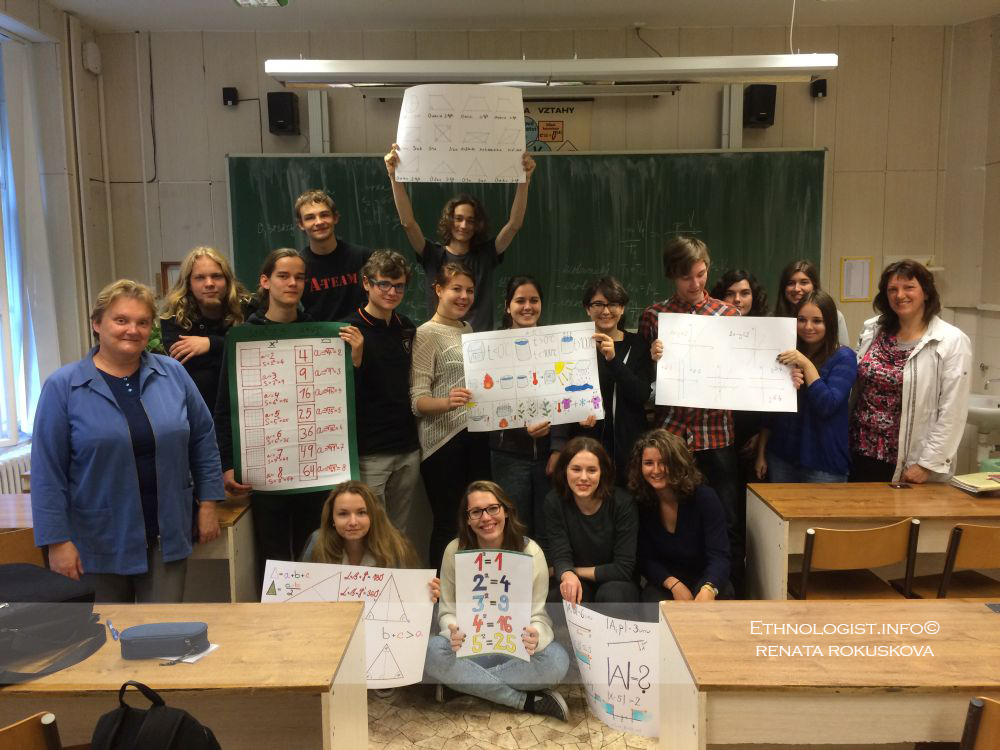
Over three years, we collaborated with MKC Praha and arranged three educational programs for pedagogues in the Czech Republic, five programs in Kenya, 53 learning programs for pupils in the Czech Republic and seven in Kenya. There were hundreds of students and dozens of teachers involved. Over time, we have established partnerships between seven Czech and six Kenyan schools. The children from both countries have exchanged information, prepared tasks, manufactured school equipment and contributed the most necessary, basic school supplies. I believe that we successfully fulfilled the aim of the project and I regret that this project was not approved once again.
Do you have any new projects now? What are your next steps?
We are dedicated to collaborating with Kenyan schools from project Shirika. We want to establish some small training farms, where children should learn practical knowledge about agriculture and after some time harvest the fruits of their labour. We would like to focus on eradicating old-fashioned and eco-destructive techniques, which have led only to the devastation of local land. We want, these ´school training farms´, to offer new and innovative ways. So, there will be new seminars for children and their parents would be welcome also, to manage to transform land to economical and productive farms – which is, surprisingly, almost impossible for many of them.
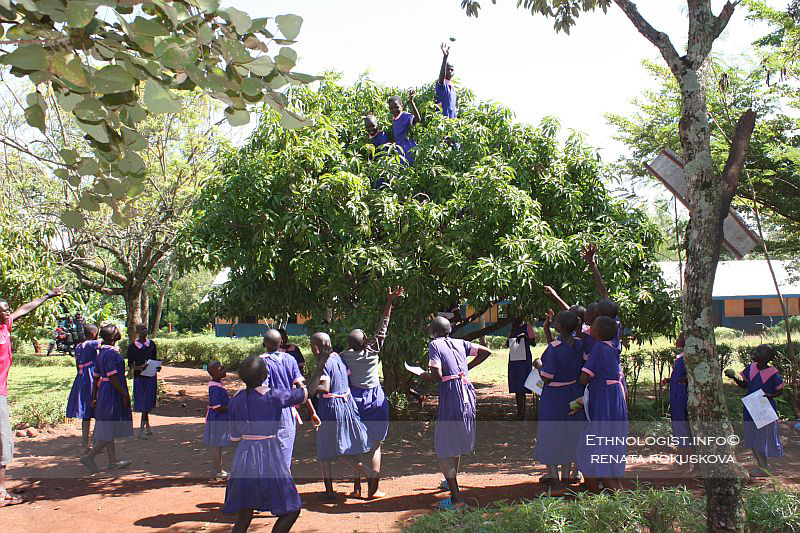
What would you like to change in education, apart from supporting independency and creativity? Do schools provide some information on, for example, how to prevent the HIV virus?
Well, of course. I have noticed informative leaflets and posters, which have understandable explanations of preventative methods to stop the spread of this virus and diseases stemming from established customs, passed down traditions, values and traditional beliefs. The children then transmitted this new knowledge, in the home, to their parents. In the case of the HIV virus, I think that there is a slightly relaxed atmosphere since the announcement of a decrease in numbers of infected people, and so there is less care taken. I would like to enrich the teaching of practical subjects, explaining how to fertilize land and grow crops, so even the poor children can successfully use their long hours before the blackboards and improve the backward agriculture, instead of only migrating from a barren landscape.